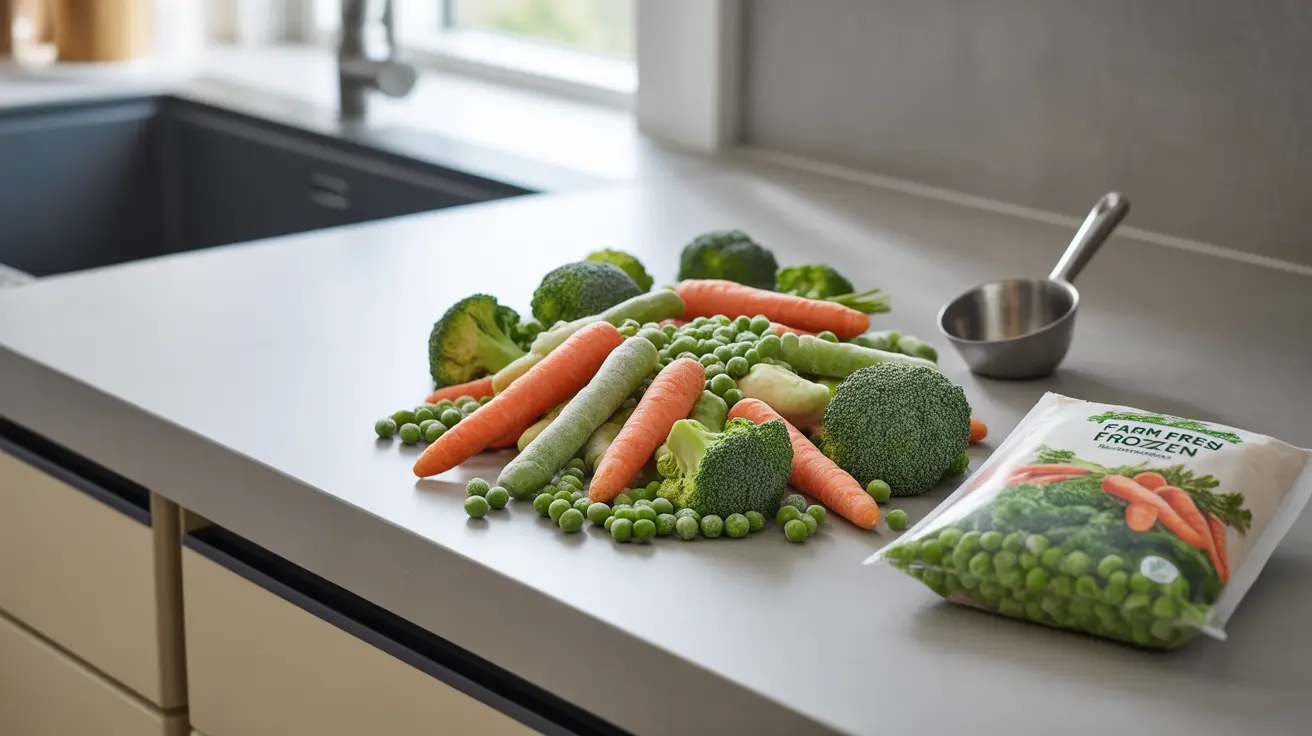When it comes to maintaining a healthy diet, vegetables are essential. But with busy schedules and varying seasonal availability, many people wonder about the nutritional value of frozen vegetables compared to their fresh counterparts. Understanding the benefits and potential drawbacks of frozen vegetables can help you make informed decisions about incorporating them into your diet.
This comprehensive guide explores the nutritional content of frozen vegetables, their preservation process, and how to make the most of these convenient alternatives to fresh produce. We'll examine the science behind vegetable freezing and provide practical tips for selecting and preparing frozen vegetables to maximize their health benefits.
The Freezing Process and Nutrient Retention
Modern flash-freezing techniques have revolutionized how we preserve vegetables. This process, known as Individual Quick Freezing (IQF), occurs within hours of harvest when vegetables are at their peak ripeness. The rapid freezing creates smaller ice crystals, which helps maintain the vegetable's cellular structure and preserve its nutritional content.
Research shows that this quick-freezing method can actually lock in more nutrients compared to fresh vegetables that have spent several days in transit or storage. This is particularly true for water-soluble vitamins like vitamin C and B-complex vitamins.
Nutritional Benefits of Frozen Vegetables
Vitamin Content
Frozen vegetables often retain higher levels of certain vitamins compared to fresh vegetables stored for extended periods. Key nutrients that remain well-preserved include:
- Vitamin C
- Vitamin A
- Vitamin E
- B-complex vitamins
- Folate
Mineral Content
Essential minerals in frozen vegetables remain stable through the freezing process, including:
- Iron
- Calcium
- Magnesium
- Zinc
- Potassium
Selecting Quality Frozen Vegetables
When shopping for frozen vegetables, consider these important factors to ensure you're getting the most nutritional value:
- Choose packages without visible ice crystals
- Look for vegetables without added sauces or seasonings
- Check for "flash-frozen" or "individually quick frozen" on the label
- Verify that packages are sealed and undamaged
- Check the harvest or packaging date when available
Best Practices for Storage and Preparation
Proper storage and preparation methods can help maintain the nutritional value of frozen vegetables:
- Keep freezer temperature at or below 0°F (-18°C)
- Store vegetables in the main freezer compartment, not the door
- Use within 8-12 months for optimal quality
- Avoid thawing and refreezing
- Consider steam cooking to minimize nutrient loss
Frequently Asked Questions
Are frozen vegetables as nutritious as fresh vegetables?
Yes, frozen vegetables can be just as nutritious as fresh vegetables, and in some cases, they may retain more nutrients. This is because they're frozen at peak ripeness, while fresh vegetables might lose nutrients during transportation and storage.
What nutrients might be lost or preserved when vegetables are frozen?
Most nutrients are well-preserved during freezing, particularly vitamins A, C, and E, minerals, and fiber. Some water-soluble vitamins might be slightly reduced during the blanching process before freezing, but the quick-freezing helps maintain most nutritional value.
How can I choose the healthiest frozen vegetables at the store?
Select packages without visible ice crystals, choose plain vegetables without added sauces or seasonings, and check for signs of proper freezing and storage. Look for packages labeled "flash-frozen" or "individually quick frozen" for optimal quality.
Are frozen vegetables a good option for maintaining a balanced diet year-round?
Absolutely. Frozen vegetables provide a convenient, cost-effective way to incorporate vegetables into your diet throughout the year, regardless of seasonal availability. They offer similar nutritional benefits to fresh vegetables and can help ensure consistent access to important nutrients.
Does freezing vegetables affect their vitamin content compared to cooking methods like boiling or steaming?
The freezing process itself has minimal impact on vitamin content. The cooking method used after thawing has a greater effect. Steaming or microwaving frozen vegetables tends to preserve more nutrients than boiling, which can cause water-soluble vitamins to leach into the cooking water.




